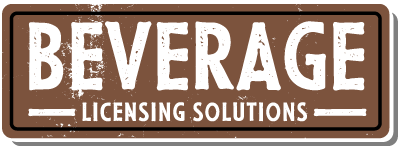
Licensing and Trademarks
What is Beverage Licensing Solutions?
Beverage Licensing Solutions is a trademark licensing firm that combines more than 35 years of expertise in brand operations, licensing and service to help our clients accelerate their brands. We do that by delivering better solutions to brand management, client advocacy and vendor cultivation.
Who needs to become licensed?
Any beverage brand or manufacturer that wishes to trade on the goodwill associated with our clients’ marks, and benefit commercially from utilization of those marks, must become licensed in order to do so. A vendor is not required to become licensed in order to resell products produced by a licensed manufacturer, so long as they do not further embellish the product or expand on the use of the insignia.
What are the organization's trademarks?
The trademarks include the organization’s name, nicknames, logos, symbols, mascots and other insignia. Any and all commercial use of these marks (or any marks that are confusingly similar) must be granted through a license agreement.
How can a nickname or symbol be a trademark?
Since the trademark owner has used the nickname and/or symbol consistently in conducting business for many years, they have the right to claim ownership of that mark within their channel of trade. Federal courts have routinely reinforced the fact that nicknames and symbols are distinctive and protectable marks.
Benefits
What are the benefits of being licensed?
There are many benefits to being licensed, including exposure on Beverage Licensing Solutions’ Ecommerce site and the ability to market your company as officially licensed. Additionally, outsourcing this function allows you to concentrate of making great products. And, while we can’t determine the amount, income earned from royalties will offset other marketing efforts.
Quality Control
Why are vendors required to submit representative samples in order to become licensed?
Our clients expect that high quality products and services are made available to their audience. We must carefully review proposed products in order to ensure that this expectation is met.
Why must all designs be approved prior to production, marketing and/or sale?
As value-based organizations and institutions, our clients must ensure that their marks are only used in ways that positively reflect their standards. Moreover, it is important that they maintain the integrity of their brand identity. Each product or service that displays one or more of our clients’ marks will have an impact on their reputation as an organization or institution, so they have a responsibility (and a legal right) to uphold certain guidelines related to the use of their marks.
Royalties
Why are vendors required to pay a royalty?
Licensing exists primarily to protect the goodwill associated with a trademark by ensuring quality control of products and services. Our clients have a right and a responsibility to control the commercial use of their marks; one of the rights afforded to them is the ability to collect a royalty in order to offset the costs of managing a licensing program. In order to protect the integrity of this royalty reporting process, and maintain a level playing field among vendors, we conduct regular audits of our licensees. These practices are industry standard and common among trademark owners.
Insurance
Why is maintaining a $1 million insurance policy, and listing the trademark owner as additional insured, required?
Our clients incur potential liability when their insignia is placed on a product or associated with a service. If someone were to sue the trademark owner in a liability claim because of a product a vendor produced or a service a vendor provided, then the organization or institution can rely on this insurance coverage in order to assist in defending themselves.
Compliance and Enforcement
How do you ensure that vendors accurately report their sales?
All royalty reports and sales data, along with payments will be submitted electronically each quarter by vendors. Our staff will thoroughly review all data submitted to ensure accuracy. The vendor license agreement also provides Beverage Licensing Solutions with auditing rights and access to sales and financial information. We conduct routine audits with vendors on behalf of our clients to ensure further accuracy.
What happens if a vendor decides to not comply with the trademark owner’s trademark rights?
On behalf of our clients, we have a legal obligation to follow up with known cases of infringement until the vendor complies with the organization’s trademark rights. If a vendor continues to utilize any of our clients’ marks outside of a license agreement, we may have no choice but to turn the case over to our attorneys. Also, if a vendor continues to utilize the marks once they are made aware of licensing, our clients require that the vendor pay back royalties from the date we first made them aware of the ownership rights before our client(s) will approve them as a licensee.
